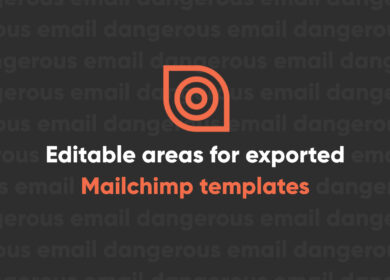
Why Your Website is Your Most Important Marketing Tool

Your website is the most powerful marketing tool at your disposal.
All of the marketing efforts you're currently working on - writing blog posts, creating social media content, sending out emails, running advertising campaigns - direct traffic to your website.
Even print ads, business cards, radio commercials, and TV spots tend to direct people to websites.
Your website is the place people go to learn more information, make a purchase, reach out for a demo, sign up for an email newsletter, or learn something new. Your website is your company's online hub, your digital business card. It should pull in traffic, offer an elevated user experience, and provide you with measurable results.
Are you using your website as the powerful tool that it is?
Let's talk about why websites are the best digital marketing tool before exploring ways to improve your website strategy to not only drive traffic but to get that traffic to stick around and convert.
Why your website is your most important marketing tool
Websites are the key place to inform, impress, and connect with your audience. Plus, you can learn valuable information about site visitors from your website analytics. Here are a few of the many ways your website is a useful marketing tool:
Impress your target audience
First impressions matter whether they take place in person or in the digital space. Websites are an ideal space for making a great first impression that will leave a lasting impact on your visitors. Site visitors should immediately understand their purpose for being on the website.
From the content on your website to the design, there are many ways to make sure you stand out online. Above all else, prioritize creating a seamless user experience and providing answers to the questions your audience is searching for, and then give them a reason to come back for more.
Collect valuable data
Your website constantly collects data. From this data, you can learn more about your website itself as well as your audience. It clues you into the impact your site is making, the paths your audience is using to navigate your site, and the top conversion points.
This data informs you which marketing strategies are working and which aren't. It can also tell you if your audience is engaged or if they're quickly leaving your site.
By tracking metrics like bounce rate, page views, average time on page, and exit rate, you can understand the success of your web pages. Track audience metrics to learn about demographics, interests, and behavior. Your website provides you with an invaluable source of data.
Prove your credibility
Having a strong website proves your legitimacy to your audience. You're able to build your credibility and grow your digital presence by having a website that connects your visitors with the information they're looking for.
Having a website to back up your brand is essential for selling yourself to potential customers. As the digital storefront of your organization, your website should be impressive, educational, and proof of the quality of your brand.
Feature your products and services
Your site is your digital catalog, a place to showcase your goods and services. Give your customers a better idea of what they're getting by working with you, hiring you, or purchasing products from you.
A good website can lead a customer through every step of the buyer's journey by encouraging its audience to explore the site, learn more about the company and its offerings, and eventually make a purchase. Demonstrate what your business stands for and how your company can provide a solution for your audience's challenge.
Grow awareness through search marketing
Search marketing is competitive, and if you aren't using your website as the powerful marketing tool that it is, you're probably not showing up when your customers are searching for your products or services.
Your website, when optimized for search, can show up higher in search results and provide answers to the questions searchers are asking, expanding your reach and growing your audience.
Offer valuable content
Your website can be a great source of information for your audience. Posting blogs, thought leadership content, and other helpful resources will better connect you with your audience and will provide value to your site visitors. Position your company as a trustworthy, reliable source of information, and a helpful, knowledgeable partner.
Components of a great website
Now that we've established why your website is your most important marketing tool, we can dive into what makes a great website. The best websites are user-friendly and optimized for user experience (UX). The likelihood that anyone will spend an extended amount of time on a website that's difficult to navigate or slow to load is slim. Websites also need to be discoverable, so implementing an SEO strategy is a crucial part of getting traffic to a website.
There are a number of factors that go into creating a great website, including:
Having a clear purpose
The reason your company exists and what your company does should be obvious to a website visitor. They shouldn't be left guessing, so if your product or service is complicated, don't hesitate to spell it out for them.
You should also remind your audience of the challenge or challenges that they're facing and present your product or service as the solution whenever possible to keep them motivated to convert.
Creating a functional design
The design of your website should be well thought-out based on the intended user experience. The design of your site is important - you want to engage your visitor early on with a visually-appealing design, but don't get too carried away to where your design takes away from the actual site content. Prioritize legibility, quality content, and clear click paths.
Your website should also have a consistent theme you can use across your channels. The branding on your site can match the graphics you post on social and the templates you use for emails. This will make for a cohesive, familiar, and recognizable brand experience.
To get the best design, make sure you work with an experienced web design agency that focuses on your goals and business needs, not just colors and pictures.
Making navigation easy
From any page your site visitor lands on, they should have a clear path to take based on their needs. Navigation is essential to a great website, so whether that's improving click paths by linking to relevant pages, including more calls-to-action and buttons, or just having an easy-to-use navigation bar, make sure your user doesn't feel confused about where to travel to next on your website.
While you might have a good idea about how someone will use your site, you should track your audience's behavior to learn more about the paths they take and adjust your site to better fit their needs.
Continuously refreshing content
Keep site visitors coming back for more with regular updates to content. Having quality content on your site should add value to the visitor by answering their questions or providing them with new, useful information.
The best way to do this is to conduct keyword research and learn about your audience. The more you can understand your audience's search habits and interests, the more relevant content you'll be able to create. You can write content for both your audience and for search engines by choosing topics your audience cares about while implementing SEO best practices to increase your rank.
Optimizing for traditional search engines
Your website might already be fantastic, but if you're not optimizing it for search results, chances are you aren't reaching your audience to the fullest extent.
You can optimize your website for search by conducting keyword research and improving on-page SEO by writing meta descriptions and title tags, adding headers, editing URLs, including keywords throughout your content, and so on.
Optimizing for generative search engines
More and more users are searching for products and services using AI tools like ChatGPT, Perplexity, AI Overviews, and more. You need to make sure your website is fully optimized to get mentioned in AI search results too, not just traditional search results. How? By optimizing content for contextual relevance, setting up accurate GEO measurement strategies, securing high-quality brand mentions, and more.
Perrill's generative engine optimization services can help you show up in more LLM search results, ensuring you're not losing traffic to AI.
Optimizing for mobile
If your website isn't optimized for mobile viewing, you're at a huge disadvantage. The percentage of people who view web pages from their mobile device hovers around 50%, so if your site isn't mobile-friendly, you're likely missing out on a huge amount of traffic.
Building smart conversion points
Do your web pages have clear CTAs? Is it obvious that you want your audience to complete an action? Do the pages that get the most traffic link to or have conversion points in them?
Think smart about your website, how your audience uses it, and the ways you can be more strategic about placing CTAs and conversion points to drive those conversions up. Make sure that throughout your website, you're proving your company's value and sharing quality, meaningful content.
Your contact information and location should also be prominently displayed on your site.
3 Tactics to improve your website strategy
If that felt overwhelming, don't worry! We'll walk you through 3 actionable steps you can take to improve the quality of your website today.
1. Regularly refresh your website content
If it's been a while since you've added new content to your site, try blogging, putting out a new case study, or just refreshing some page copy. Breathing new life into your website can help it feel fresh and updated.
2. Add images or videos to improve a page's visual appeal
This can make your page much more engaging with minimal effort. Try to show rather than tell, and make sure to include alt text to improve accessibility.
3. Add or edit on-page SEO basics to greatly improve visibility
By spending a little time tweaking the language in your meta description, adding schema, sectioning your page with headers and bullet points, and using your focus keyword in your title tag, you can improve your page's rank. Make sure you work with an SEO agency when you are building out your website.
These steps are a great starting point, but to really make the bigger improvements that will set your site apart from your competitors and convince your site visitors to stick around and convert, you might want to consider bringing in digital experts.
Perrill is a digital-first marketing agency that specializes in marketing, website design and development, and SEO. We're equipped to help you get your website where it needs to be and can handle everything from backend work to promoting your site when it's finished.
Measuring Site Success
After making those improvements, make sure you measure the success of your website. Google Analytics is a great tool for tracking website data, but the current platform is getting sunset this July. If you haven't upgraded to the new analytics platform, GA4, you should get on top of it as soon as you can.
Google is automatically setting up GA4 properties for Universal Analytics users, but to ensure that all of your data is tracking properly, you'll have some additional backend work to do. GA4 is a complex platform, so knowing that the goals you're trying to measure are properly set up is key to not having gaps in your analytics.
Save yourself some time and let Perrill handle it for you - we've already set up over 80 GA4 accounts and will set yours up and save your historical data from Universal Analytics. Reach out to learn more.
Work with Perrill to improve your website strategy
If all of these website tips feel a little over your head, we're here for you. As digital experts, we'll help your business with a custom strategy to improve your website and marketing tactics. Contact us today to start winning online.





